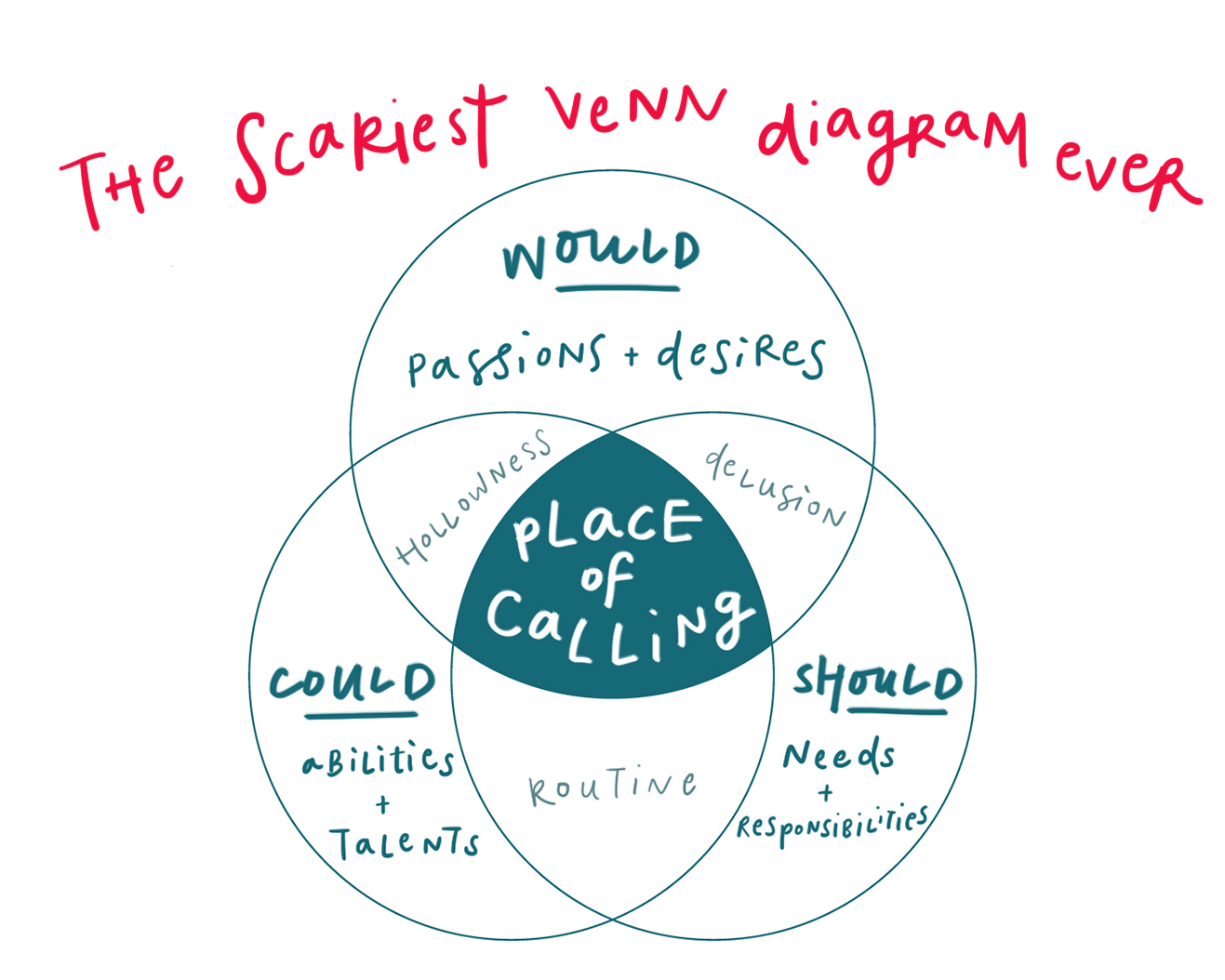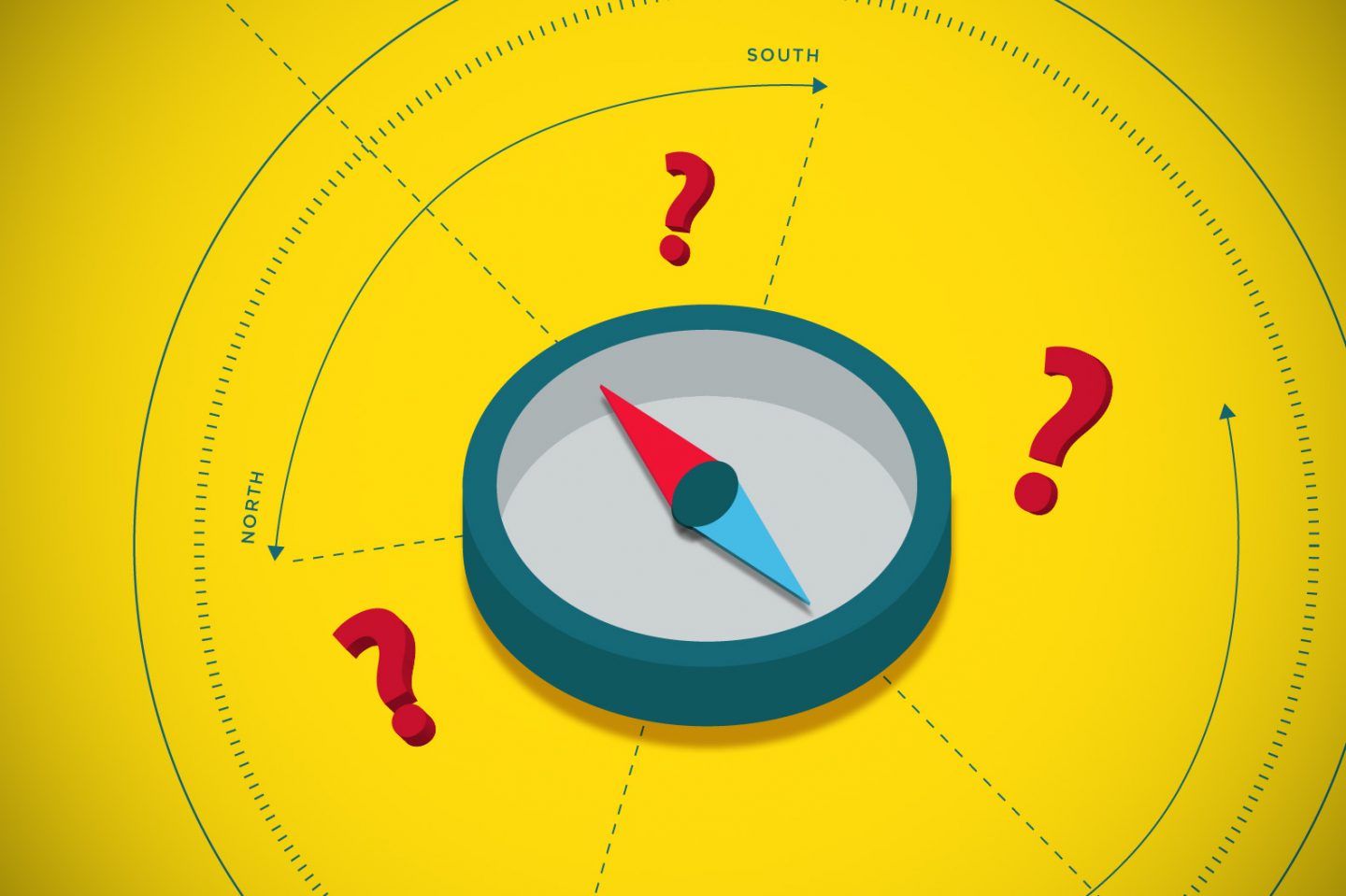The Bible suggests that God has a special plan for you.* Not merely your choice of work or course of study, but why you exist.
It’s a lofty ideal – the elegant union of power, significance, relevance and contentment.
Yet, for many people it is frustratingly abstract, so difficult to grasp. Dream, reverie, fantasy. We share Jeremiah 29:11 after every success, but struggle with God’s “mysterious ways” when we don’t get our way. Is this all there is to a Christian’s call, purpose and destiny?
When we give our lives to Jesus, we are united in purpose – to glorify God. But that is the destination, and each of us will take our own unique road to get there.
This is your calling.
God’s call for you lies at the intersection of three big questions: Would, could, and should.
“WHAT WOULD YOU DO?”
What keeps you awake at night? What brings fire to your eyes and warmth to your soul? What brings you discomfort? What makes your blood boil, or your mind queasy?
Not sure? Then get out there. Open your eyes. Listen to your heart. Volunteer, watch documentaries, go to the museum, and read up about science, politics, and current affairs. Learn about the history of human conflict, the Syrian refugee crisis and climate change.
Not everything should affect your faith, but your faith should affect everything. We call this a biblical worldview.
Develop a healthy, God-fearing level of scepticism that does not settle for half-truths, righteous anger towards injustice, and sympathy for the hurting. Figure out where and how God’s light can shine into the brokenness of the world, and how you can be a vessel of that light.
Not everything should affect your faith, but your faith should affect everything. We call this a biblical worldview. When we discover more about God’s will through His Word, we begin to grasp God’s heart for the world and our special purpose in it.
“WHAT COULD YOU DO?”
Another dimension to your calling is your ability (or lack thereof) – your gifting and talents. Members within the body of Christ are called to serve one another in ways relevant to one’s gifting (1 Corinthians 12).
Some things, like hand-eye coordination or perfect pitch, are largely present from birth. Others, such as compassion, oratory or musical virtuosity are cultivated, nurtured and trained.
For most people, your abilities are focused within a narrow range of skillsets, and it’s easy to decide what to work on. Such a person’s calling is uncomplicated.
Get out there. Open your eyes. Listen to your heart. Volunteer, watch documentaries, go to the museum. Learn about the history of human conflict, the Syrian refugee crisis, climate change.
For those with no obvious skills, it is your responsibility to discover and develop yourself accordingly. It is largely a trial and error process involving much experimentation and risk-taking, but you have nothing to lose.
If you’re still young, this is the best time to make mistakes for the sake of learning. Learn a musical instrument, lead a cell group devotion, or pick up some coding. You’ll never know if you’re good or bad at something until you’ve given it a shot.
There is huge opportunity and demand for volunteers in areas of ministry that require little skill, but great heart, patience and humility. Such members are essential in the Body of Christ (1 Corinthians 12:22). The harvest is plentiful, but labourers are few (Luke 10:2).
Then there’s the gifted bunch of skilled jacks of all trades, masters of none – or perhaps even masters of all. You have the privilege of having the skills necessary to serve God in multiple areas. You have options, so use this final question to discern the path to walk …
“WHAT SHOULD YOU DO?”
Students are no strangers to responsibility. But the younger you are, the more straightforward these are – you know what your duties are in home, school and church.
But as these pile up, you’ll come to realise that you can’t do everything. Responsibility starts becoming a matter of priorities. Learn to prioritise these responsibilities and sort out the negotiables from the non-negotiables, asking God for wisdom (James 1:5).
As your worldview develops, you begin to develop moral convictions. When you dig deep into the Word of God, cultivate a vibrant prayer life, and regularly connect with other believers in fellowship, your moral compass will be calibrated and fine-tuned.
You will appreciate the sanctity of human life and understand justice from God’s perspective, among other things.
Your calling, therefore, is the intersection of passion, ability and conviction.

As you figure out how to draw and fill the three circles of your life, remember to start with God, in prayer and His Word.
The fulfilling life is knowing that one is precisely where God desires one to be, regardless of circumstance. It is seeing our little lives in the context of God’s grand narrative.
So now the ball is in your court. Mull about it, pray about it. But take the time to find your own, unique, individual answer to everyone’s big question: COULD + SHOULD + WOULD = ?
Then get out there and start living out your calling.
*For those of you who like cross-references, feast on: Jeremiah 29:11, Proverbs 16:9, Proverbs 19:21, Ephesians 2:10, Psalm 138:8, 1 Corinthians 2:9, Isaiah 64:4.









